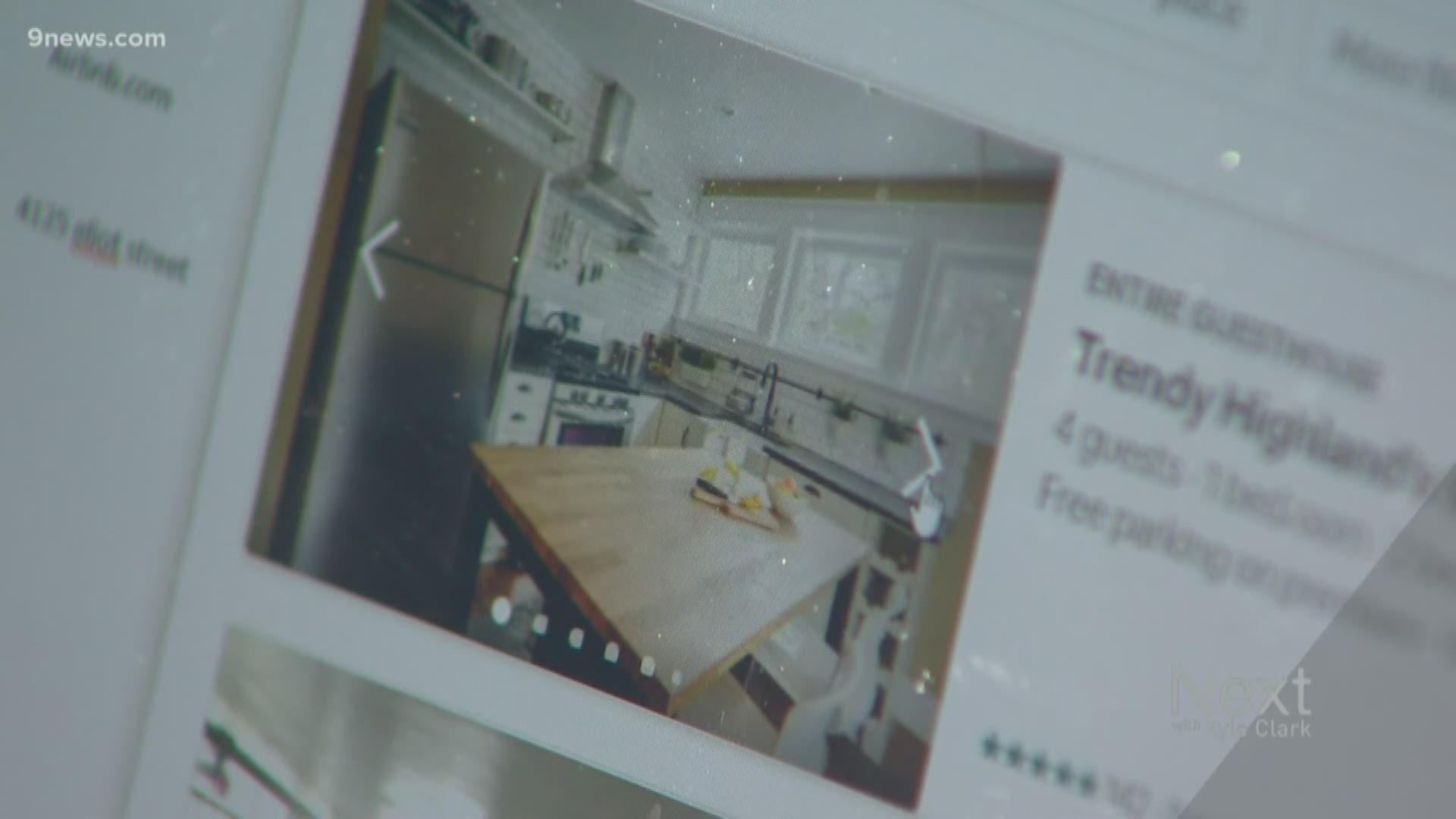Every single word in the laws that govern our city matter. When those words change, it can impact a lot of people.
Like right now, when the City of Denver is proposing updating the wording regarding who can rent out their homes on websites like AirBnB and VRBO, as well as adding new licensing fees.
"We have to adapt with the industry," said Eric Escudero, the spokesman for the Denver Department of Excise and Licenses. "It doesn’t mean all short term rentals are bad, we just want to have protections in place for those instances where there are irresponsible short term renters."
The city says the changes will help with enforcement. Short term rental hosts call it an overreach.
Let’s start with who is allowed to host. The City of Denver makes it clear that only homes considered to be primary residences are allowed to be rented out on websites like AirBnB and VRBO.
The city said it doesn't want a one-size-fits-all standard for issuing permits, but it is proposing possible standards for issuance or denial of a license.
So what exactly could change? The city is proposing updating the factors it would use to consider whether a home is someone's primary residence, what documents can be used to prove that, and their standards for allowing or denying an application.
According to the city, "primary residence" would still essentially be defined as the place a person lives, and people who already have licenses wouldn't be affected.
"The primary residence rule in Denver requires that if you are going to offer a short term rental, that it be your usual place of return, is one of the most important things when it comes to Denver having a successfully regulated short term market," said Escudero. "We’re making adjustments to language in the ordinance as far as what the standards we use to decide if we’re going to issue a license or revoke a license."
The city said by adding more ways to prove primary residence, they can crack down on rentals that cause disturbances and raise property values.
The new rules would also allow people to provide additional documentation to prove primary residency. Documents like motor vehicle registration, voter registration, tax return, and utility bills can be used. Additional documents approved by the city may now be used also if the ordinance passes.
"The changes that we’re proposing to city council is an update to how we issue the licenses, the things we consider for issuing a license, and also revoking a license or turning down an application, especially as pertains to the primary resident rule," Escudero said.
Under the new rules, the $25 yearly licensing fee would increase to $100. Denver doesn't currently charge an application fee, but they would implement a $50 application charge, as well.
When it comes to money, Escudero said making sure the city enforces primary residence rules can impact the housing market in general, as well.
"If there are lots of real estate investors that bought up lots of houses and rented them out for short term rentals, guess what, there’s less houses on the market, and unfortunately costs would go up."
When you talk to others in the rental industry, they’ll say the changes unfairly limit who can rent their homes out.
Dana Lubner is a member of Mile High Hosts, a short term rental advocacy group in Denver. She points to the industry regulating itself through things like events that promote responsible hosting as a better solution than government regulation.
"We’re concerned with the proposed changes because we think there will be unintended consequences and potential discrimination towards future hosts," said Lubner. "We feel like there is no need for further enforcement, but find a solutions-based approach that would educate hosts and relieve any sort of issues that neighbors have with problematic properties. I don’t think we’re getting anywhere with this style of enforcement. Our concern is that this new language is only going to further empower the city to govern with an enforcement mentality."
There are currently 2,576 active short-term rental licenses in Denver, according to the city.
The city says it will make its initial proposal to the city council in the next couple of weeks.
You can read the city's proposed changes here.
SUGGESTED VIDEOS | Local stories from 9NEWS

